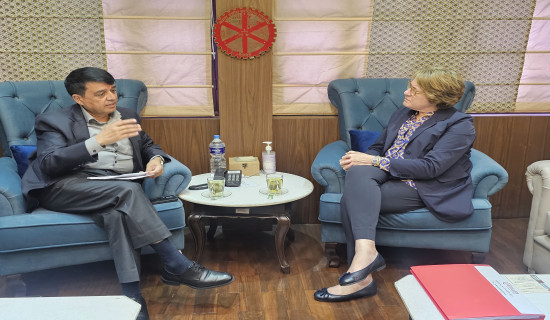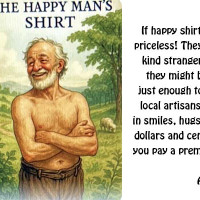- Saturday, 9 August 2025
Debunking Feminist Myths
It all began one evening over coffee. My brother and I had always been close, with a sibling bond that allowed for open, sometimes fiery, discussions. That day, the conversation turned to feminism. I noticed the shift in his posture as soon as I mentioned the word—he leaned back in his chair, arms crossed, preparing for a debate. I listened patiently, knowing that his discomfort with feminism wasn’t unique. It’s a common misunderstanding, one rooted in misrepresentation and vilification. I took a deep breath and gathered my thoughts.
“Feminism,” I said, “isn’t about hating men. It’s about challenging the oppressive system of patriarchy, which harms both men and women. In fact, feminism has helped free men from unrealistic expectations—like the pressure to be the sole providers. Women are now financially independent, which benefits everyone. Feminism isn’t taking anything from men; it’s about balance and mutual respect.”
He raised an eyebrow, skeptical. “But why do I keep hearing about women misusing feminism? You can’t deny that some women use it to get away with things.”
I nodded. “Yes, there are individuals who misuse feminism, just like there are people who misuse any ideology. But that’s not feminism’s fault. At its core, feminism is about equality—nothing more, nothing less. It seeks a world where both men and women are treated with fairness and respect.”
He seemed to mull this over, but then threw out another example. “Okay, but when a man earns money, he thinks about his family. When a woman does, it’s like she forgets about her family and only cares about herself. Doesn’t that prove my point? That feminism makes women selfish?”
I couldn’t help but smile, though his argument was flawed. “First, let’s avoid generalizing. Not all men or women behave the same way. It depends on the individual and their circumstances. But statistically, many men are more family-oriented because they’ve traditionally had more support from their families in their success. Women, on the other hand, may feel detached because, historically, they’ve lacked the same respect and support.”
He looked puzzled. “What do you mean?”
I explained, “For many women, financial dependency kept them in toxic or oppressive environments. Historically, women couldn’t leave bad marriages or abusive situations because they lacked the means to support themselves. Thanks to feminism, women now have the financial independence to stand up for themselves. It’s not selfishness—it’s empowerment. Feminism has given women the ability to demand respect.”
He was quiet for a moment, processing this. It seemed like he hadn’t considered that perspective before.
Then, the conversation took a familiar turn. He mentioned one of his favourite movies, Kabir Singh, a film I had criticised more than once. “You always get so upset about movies like Kabir Singh or Animal. Why can’t you just enjoy them for what they are? Why do you have to analyse every line?”
I sighed. “It’s not about the movie itself. It’s about the message it sends. Films like these glorify toxic, abusive men as heroes. They shape how young boys and teenagers perceive relationships. When you make toxic behaviour seem romantic or acceptable, it normalises it. The issue isn’t the character’s flaws—it’s that they’re framed as heroes. That sends the wrong message to society, especially to the next generation.”
He seemed surprised. “I didn’t think of it that way. But aren’t these characters just reflecting reality? People like that exist, don’t they?”
“Exactly,” I said. “The problem is that these films don’t show the toxicity as something to be challenged. Instead, they glorify it. If the character was portrayed as a villain, that would be one thing. But they’re the hero, and that makes their actions seem acceptable. When we celebrate films like these, we’re telling the next generation that it’s okay to treat women poorly. It’s subtle but powerful. And the fact that you, and so many others, don’t see the problem with it shows how deeply ingrained these ideas are.”
He sat back, thoughtful. “I guess I never really saw it that way. It’s not that feminism is bad; it’s just been twisted by some people. It’s not about men vs. women, is it? It’s about equality.” I grinned. “Exactly. Feminism isn’t about putting men down. It’s about lifting everyone up. It’s about creating a society where all genders thrive and are treated with respect. It’s not a man-hating movement—it’s about cherishing humanity.”
Our conversation ended on a positive note, with my brother admitting that he had been too quick to judge feminism based on inaccurate examples. It was a small victory, but an important one. Conversations like this are crucial for debunking myths and building a more equal world.
6th Semester, Pulchowk Engineering Campus

















